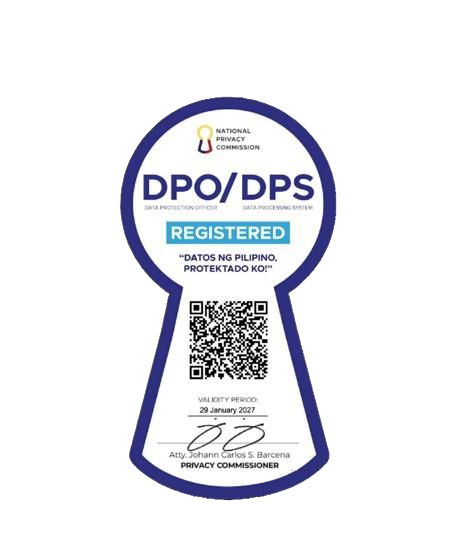Small and medium enterprises (SMEs) form the backbone of the Philippine economy, accounting for 99.5% of all registered businesses and employing approximately 63% of the country's workforce. Despite their significant role, many SMEs face persistent challenges in maintaining steady cash flow, often due to delayed customer payments and limited access to traditional financing options.
Invoice financing emerges as a practical solution to this issue. Allowing businesses to convert unpaid invoices into immediate working capital provides the liquidity needed to sustain operations, invest in growth, and navigate financial uncertainties.
In this guide, we’ll explore how invoice financing works in the Philippines, its types, benefits, eligibility requirements.
What is Invoice Financing?
Maintaining a healthy cash flow is a common challenge for small and medium enterprises (SMEs) in the Philippines, especially when clients delay payments. Invoice financing is a form of short-term borrowing that allows businesses to unlock cash tied up in outstanding customer invoices.
Invoice financing offers a practical solution to this issue by enabling businesses to borrow money against their outstanding invoices.
Instead of waiting 30, 60, or even 90 days for customer payments, companies can unlock capital tied up in accounts receivable and use it to fund operational needs or invest in growth. This approach ensures businesses remain financially agile, especially when traditional loans are either too slow or inaccessible.
Invoice financing has become increasingly relevant in the Philippines as SMEs continue to seek faster, more flexible funding options without overextending themselves with long-term debt.
Types of Invoice Financing
Understanding the types of invoice financing is essential to choosing the right option for your business. In the Philippine market, two primary models are commonly used:
1. Invoice Factoring
With invoice factoring, you sell your accounts receivable to a financing company (often called a “factor”). The factor pays you a large portion of the invoice value upfront, typically 70% to 90%, and assumes responsibility for collecting the payment from your customer. Once the invoice is paid, the factor deducts a service fee and releases the remaining balance to you.
Best suited for: SMEs looking for immediate liquidity and relief from managing collections.
2. Invoice Discounting
Invoice discounting works similarly but with a key difference: you retain control over your customer relationships and collections. The financier advances a percentage of the invoice, and you repay the loan once your customer pays you.
Best suited for: Businesses with solid credit practices and a desire to maintain discretion.
Revolving Credit Line vs. Traditional Loans
Unlike fixed-term loans that offer a lump sum and fixed repayments, invoice financing works as a revolving credit facility. Funds can be drawn and repaid repeatedly, based on the value of your current receivables. This ensures flexibility and scalability as your business grows, something traditional bank loans may not always accommodate.
Also Read: Home Loan Financing in the Philippines
Benefits of Invoice Financing in the Philippines
The local SME ecosystem is rapidly evolving, but access to working capital remains a persistent barrier. Here’s how invoice financing addresses this challenge:
- Improved Cash Flow and Liquidity
Invoice financing allows your business to maintain smooth operations by providing immediate access to funds. This liquidity can be used for procurement, salary disbursements, marketing, or short-term obligations. - Accelerated Business Growth
With readily available funds, you can take advantage of opportunities such as bulk purchases, seasonal demand spikes, or facility upgrades without waiting for invoice settlements. - Bridging Payment Gaps
Many Philippine SMEs operate on long receivable cycles. Invoice financing bridges this gap, reducing financial strain and enabling better financial planning. - Reduced Dependence on Traditional Credit Lines
Because your receivables secure the financing, it doesn’t require heavy collateral or lengthy approval processes, making it more accessible than conventional bank loans.
These advantages make invoice financing a practical tool for SMEs aiming to sustain daily operations, plan ahead with confidence, and invest in consistent long-term growth.
Also Read: Types of Business Loans and Financing Options Available in Cavite, Philippines

Key Features of Invoice Financing
Each provider may offer slightly different terms, but the core features of invoice financing in the Philippines typically include:
- Repayment Terms Aligned With Invoice Durations
Most financing companies offer repayment periods ranging from 30 to 60 days, allowing you to sync repayment with customer payment cycles. - Substantial Credit Limits Based on Revenue
Depending on your business’s annual income and invoice value, you may qualify for credit limits of up to ₱20 million, supporting larger operational needs. - Speed and Simplicity
Compared to traditional loans, invoice financing has a faster turnaround. Many providers offer approval and disbursement within a few working days, especially for recurring clients.
These features make invoice financing a dependable and repeatable funding method for businesses operating on tight margins or rapid sales cycles.
Also Read: DCCCO Multipurpose Cooperative-Regular Loan Products Financing in The Philippines
How to Qualify for Invoice Financing?
To access invoice financing in the Philippines, SMEs must meet certain basic qualifications, including business registration and operational credibility.
Who Can Apply:
- Sole proprietorships registered with the Department of Trade and Industry (DTI)
- Partnerships and corporations registered with the Securities and Exchange Commission (SEC)
- All businesses must have a valid Bureau of Internal Revenue (BIR) registration
Documents Usually Required for Invoice Financing:
- Government-issued ID of the owner or authorized officer
- Business registration documents (DTI, SEC, BIR)
- Copies of outstanding invoices
- Latest bank statements (3 to 6 months)
- Audited financials or income tax returns
Meeting these requirements helps the financing provider assess your creditworthiness and customer reliability both of which influence your approved amount and interest rate.
Also Read: Fast Online Smart Cash Loan for Philippine Employees

How to Choose the Right Invoice Financing Provider?
Not all invoice financing services are created equal. To maximize your benefits, you must select a provider aligned with your business’s size, industry, and cash flow needs.
Consider the following when comparing providers:
- Transparent Pricing
Review interest rates (typically 1.09% to 1.90% per month, depending on the credit limit) and look for clear disclosures without hidden fees. - Flexibility in Credit Limits and Terms
Does the provider offer tailored solutions, or is it a one-size-fits-all model? Opt for companies that provide credit lines scaled to your business turnover. - Support and Guidance
A financing partner who offers more than just capital such as borrower education and customer support can make the funding process smoother and more strategic.
For example, N90 Asia offers an invoice factoring solution specifically tailored to Philippine SMEs, featuring reusable credit lines, transparent pricing, and ongoing support through financial coaching.
How N90 Can Help with Invoice Financing
Managing cash flow gaps is a common challenge for growing SMEs. N90 offers a specialized invoice financing solution designed to provide timely access to working capital without adding long-term debt. Here's how N90 supports your business:
- Flexible Credit Lines
N90 provides a reusable line of credit based on your accounts receivable, allowing you to access funds as needed and repay once invoices are cleared. - Transparent Pricing Model
Enjoy clear, upfront interest rates with no hidden charges. Depending on your annual revenue, monthly rates can be as low as 1.09%. - High Credit Limits
Eligible businesses may access up to ₱20 million in financing ideal for fulfilling large orders, meeting seasonal demand, or funding operational upgrades. - Fast and Efficient Processing
With a streamlined application process, approved businesses can receive funds within just a few working days, ensuring they never miss critical opportunities. - Relationship-Based Approach
N90 goes beyond lending by offering financial coaching and personalized guidance, helping borrowers make confident, informed financial decisions.
By providing transparent, responsive, and customized invoice financing solutions, N90 stands as a dependable financial partner for SMEs aiming to strengthen their cash flow and grow with confidence.
Conclusion
Maintaining steady cash flow is one of the most pressing challenges for SMEs in the Philippines. Invoice financing addresses this gap by converting unpaid receivables into immediate working capital, allowing businesses to operate smoothly, invest in growth, and avoid cash shortages.
This financing method offers speed, flexibility, and minimal risk, making it ideal for businesses with regular billing cycles and trusted clients. With N90, you gain access to transparent pricing, tailored credit limits, and dedicated financial support that puts your business first.
FAQs
1. How does invoice financing improve cash flow for SMEs in the Philippines?
A: Invoice financing allows SMEs to access immediate funds based on their outstanding invoices, instead of waiting 30 to 90 days for customer payments. This provides a steady cash flow that helps cover operational costs, invest in new projects, and pay suppliers or employees on time.
In a market where delayed payments are common, this financing method ensures businesses can maintain stability and continue growing without taking on long-term debt.
2. Is invoice financing a loan, and will it affect my company’s debt profile?
A: Invoice financing is not a traditional loan. Instead of borrowing against assets or providing collateral, you use your receivables as a form of credit. Since the funding is tied directly to incoming payments from your clients, it’s generally considered off-balance-sheet financing.
This means it has a minimal impact on your debt-to-equity ratio, making it a more attractive option for companies looking to keep their financials lean and investor-friendly.
3. What are the risks involved with invoice financing?
A: While invoice financing offers many benefits, there are some risks to consider. If your customers delay payments beyond expected terms, it could affect your ability to repay the advance within the agreed period. In the case of factoring, the financing company may also contact your clients, which could impact your business relationships.
4. How is the financing amount determined in invoice financing?
A: The financing amount depends on the value of your outstanding invoices, your annual revenue, and the creditworthiness of your clients. Most providers offer 70% to 90% of the invoice value upfront.
5. Can startups or newly registered businesses apply for invoice financing?
A: Yes, but eligibility depends on having an active invoicing cycle and clients with a solid payment history. While startups may face more scrutiny due to limited financial history, they can still qualify if they work with well-established clients and maintain proper documentation.
N90 works closely with younger businesses by offering guidance during the application process and helping them build the financial discipline required to benefit from invoice financing solutions.














